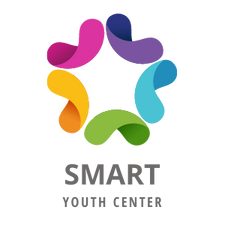“Support Mobility Activities Running through Tech – S.M.A.R.T. Youth Centers” project is a Strategic Partnership (Key Action 2 – KA2) of the Erasmus+ Programme funded by the Hellenic National Agency INEDIVIM (The Youth and Lifelong Learning Foundation). The project started on December 2021 and will run for 24 months under a consortium of 8 partnering organizations from 6 different European countries.
S.M.A.R.T. is the continuation of 2 previous Strategic Partnerships projects of I.R.T.E.A. (STEPS Youth Centers and the VR in School Education and Civic Participation) under the general topic of introducing and integrating new technologies in youth work.
S.M.A.R.T.’s main objectives are the following:
- The development of digital skills and competences of youth workers
- Ensuring the inclusive nature of learning opportunities
- The development of e-learning, mixed and distance learning skills
- The development of digital pedagogical skills of youth workers
- Empowering youth workers to provide high-quality, digital, non-formal inclusive education
Participants in this process will be youth workers and their main feature is that they wish to develop their digital skills in the field of Digital Youth Work (DYW). As a result, people with or without much experience in the field of Youth will be sought who are interested in gaining a background in digital tools and methodologies that will allow them to adapt their work to the new trends of digital activities in the youth field.
The expected results of the project are identified in empowering and educating youth workers to be able to understand how digitization shapes societies, including its impact on education and the youth sector in general, to take into account the ‘digital culture’ of young people, to foster a more flexible culture in the adoption of digital tools in education, to design DYW actions in line with the needs and hopes of young people and to encourage the participation of young people in all phases of DYW.
Through the envisaged activities, the project aims to fulfil the following outcomes:
As tangible Project Results:
- The development of MOOC courses and their attendance by participants on various aspects and tools of DYW and Digital Training,
- The creation of VR environment for the implementation of activities aimed at young people,
- The pilot implementation of youth activities by the participants themselves,
- The creation of a Digital Toolbox containing tools, methods and applications useful in the field of Digital Education and Training based in the field of DYW.
In terms of general added value, the project will help youth workers:
- Understand the way digitalization shapes societies
- Engage more in shaping and affecting the process of digitalization
- Take into consideration the youth’s “digital culture”
- Cultivate a “flexible mindset” regarding adopting digital methods in their work, which will help them adapt more easily.
- Train in using the available digital tools, applications, and methods
- Design and implement digital youth activities according to young people’s needs, priorities, wishes, ambitions etc.
- Further encourage young people to participate in digital youth work
- Recognize the difficulties that obstruct or limit youth’s participation in the aforementioned activities and find ways to get over them
- Use complementary and supporting technologies in order to support young people with disabilities
- Aide young people in developing critical thinking regarding the available online material and resources
- Understand the level of digital literacy of every young person and adjust the learning activities accordingly
- Get informed regarding the GDPR law framework
- Get specialized on the available digital creative tools
- Be in position to help young people limit the environmental consequences of digital technologies’ extended use
- Be in position to define proper professional limits in digital relations with youth
Impact of the Project
S.M.A.R.T. project focuses on achieving a triple impact. First, it seeks to create opportunities for organizations, trainers and youth workers to innovate. Secondly, it aims at the increased use of Open Educational Resources, ensuring that educational materials produced with European or public funding are free, open and available to all for use or reuse. Finally, it seeks to improve the infrastructure of Information and Communication Technologies (ICT) and connectivity in youth centers.
Consortium Members
- Institute Of Research & Training on European Affairs – I.R.T.E.A. (Greece)
- Zavod Mladinska Mreza Mama (Slovenia)
- Change Your Life Now – CYLN (Greece)
- Comune Di Cinisello Balsamo (Italy)
- Vsl “Amicus Certus” (Lithuania)
- DYPALL Network (Portugal)
- Keks Stodforening (Sweden)
- Private Company Bolt Virtual Services and Productions (Greece)
